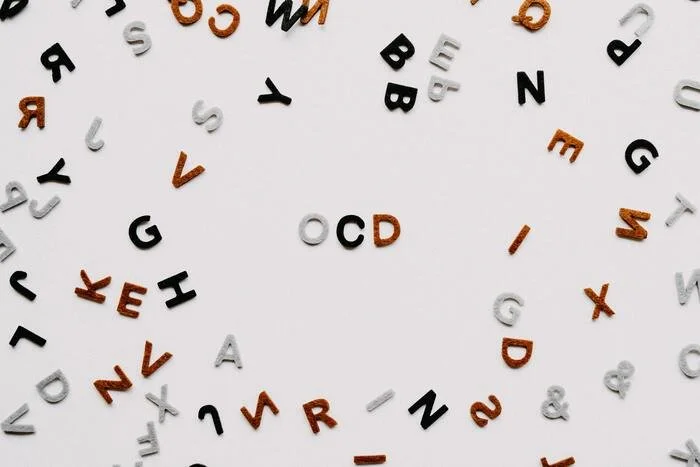Obsessive-Compulsive Disorder (OCD)
Obsessive-Compulsive Disorder is characterised by the presence of obsessive thoughts and compulsive actions / rituals to manage the distressing thoughts and associated feelings. Severity can vary among individuals with OCD. Some people experience obsessive thoughts and compulsions that do not highly interfere with their day-to-day life. However, for others, these can significantly impact their daily functioning.
Understanding Obsessive-Compulsive Disorder (OCD)
For some people, having OCD can be a real challenge as the obsessions and compulsions can highly impact their relationships, self-esteem and self-confidence, academic and work careers, social life and mood. Some people will isolate themselves for fear of acting on compulsion during a social event and other people notice that.
An obsessive thought can be described as an unwanted, persistent, and intrusive thought that keeps entering the individual’s mind. A thought that won’t go away. The obsession in OCD can also be an image or an urge. Obsessive thoughts, urgers or images can cause the individual who experiences them to feel anxious, uncomfortable, scared, or disgusted.
A compulsion can be described as repetitive behaviour that the individual feels compelled to perform -even if they don’t want to- to find relief from the uncomfortable feelings triggered by the obsessive thought. Acting on their compulsion will provide temporary short-term relief. The compulsion in OCD can also be a repetitive mental behaviour.
There is a difference between an occasional unwanted thought or a superstitious ritual performed as good luck before an important event and OCD. A person that suffers from OCD will have persistent and distressing thoughts or images and will have an urge to engage in specific actions / rituals.
The obsessive thoughts characteristic of OCD might feel too shameful or bad to talk about with others. People might feel they are bad people because they have those thoughts. This, together with the stigma around mental health, can make it difficult for individuals with OCD to receive support and treatment and make them feel significantly more hopeless and isolated. Current treatments for OCD can make a significant difference in the quality of life of the individual and in the management of the symptoms.
What Are The Main Symptoms Of OCD?
OCD symptoms are categorised under obsessions and compulsions. They can manifest in different ways in different people. Another symptom is anxiety. Obsessions trigger high levels of anxiety and stress.
Often these symptoms impact the person’s daily life as they can be time-consuming. For instance, if a person has the compulsion of needing to touch the door handle three times before leaving the room, they will be compelled to do it even when it is not convenient - such as in an emergency.
- Obsessions:
Obsessions or obsessive thoughts are different from day-to-day worries or anxious thoughts. A person with OCD might try to relieve the anxiety associated with the obsessive thought with a compulsion or eliminate the thoughts by substituting them with a different thought.
OCD can manifest in many different ways. However, some common obsessions are fear of contamination, the extreme need for symmetry and order and fear of purposely hurting others or themselves. Common obsessions or obsessive thoughts could include, for example:
Thoughts that the person considers shameful or bad
Thoughts or images of hurting others or themselves
Thoughts of being contaminated by infection, germs or disease
Urge for symmetry among objects
Thoughts or images of losing control
Usually, obsessions are constant, and it’s common for the person with OCD to experience the same type of obsession / the same specific thought. However, the thought can also develop and change over time. Therapy for OCD usually involves gradual exposure to situations which trigger the obsession, helping the individual to manage the anxiety rather than engaging in compulsive behaviours. You can read more about the treatment in the section below: ‘Treatment for OCD’.
- Compulsions:
Compulsions are repetitive behaviours / rituals that the person with OCD is compelled (feels the urge) to perform to relieve the anxiety associated with an obsession.
Similarly to obsession, compulsion also can vary significantly from individual to individual. However, common compulsions could include, for example:
Hand washing and cleaning
Checking windows, doors, locks, and others
Mentally repeating phrases or single words
Counting or other rituals to prevent something bad from happening
Overthinking excessively
Repetitively seeking reassurance
‘Undoing or neutralising’ bad thoughts
The compulsion might not always appear to be directly linked to the obsession. For instance, a person with OCD with obsessive thoughts of hurting others would feel unease and upset by these and might feel the compulsion to walk fast for a specific number of steps to relieve the distress triggered by the intrusive thought. Further, compulsions can be acted out with actions as well as with thoughts.
What Causes OCD?
The causes of OCD are not yet fully understood. Research suggests that it might be a combination of a genetic predisposition, environmental factors, brain structure and functioning and personality traits.
Some studies suggest that compulsions are learnt behaviours that become repetitive as they are used to relieve the individual from anxiety. Distorted beliefs and personality traits also seem to play a significant role in triggering, maintaining and worsening OCD symptoms. OCD is also suggested to be triggered by functional, chemical, and structural changes in the brain. Thus, different factors may interact together. Moreover, stressful and traumatic life events, personality traits and hormonal changes can also trigger the development of OCD.
Treatment for OCD
Therapy for OCD can be highly effective. The most effective treatment for OCD is Cognitive Behavioural Therapy. The therapist will gradually expose the client to situations that trigger their obsessive thoughts and help them experience the thoughts without seeking relief / neutralising them by engaging in compulsive and avoidance behaviours; this technique is called Exposure and Response Prevention (ERP). In some cases, if OCD is very severe, it might require medication support to manage symptoms, used in conjunction with psychological therapy.
Other techniques might be used in addition to ERP, such as psychoeducation around OCD, techniques to manage anxiety such as breathing, mindfulness and relaxation techniques and others.
Please get in touch with us to learn more about therapy for OCD or schedule an appointment for a free initial consultation.
Obsessive-Compulsive Disorder (OCD): Frequently Asked Questions
What is Obsessive-Compulsive Disorder (OCD)?
Obsessive-Compulsive Disorder (OCD) involves intrusive, unwanted thoughts, images, or urges (obsessions) and repetitive behaviours or mental rituals (compulsions) carried out to reduce distress or prevent something bad from happening. While compulsions can bring brief relief, they often keep the cycle going and can take up a lot of time and energy, affecting relationships, work, study, and everyday life.
How can therapy help with OCD?
Therapy can help you understand how OCD operates, break the cycle between obsessions and compulsions, and gradually face feared situations in a safe, structured way. Our psychologists support you to respond differently to intrusive thoughts, reduce rituals and avoidance, and rebuild confidence so that OCD takes up less space in your daily life.
What types of therapy do you use for OCD?
Our psychologists use evidence-based approaches, including Cognitive Behavioural Therapy (CBT) with Exposure and Response Prevention (ERP), and may integrate elements of Acceptance and Commitment Therapy (ACT), Compassion-Focused Therapy (CFT), and mindfulness-based strategies. Your treatment plan is tailored to your specific symptoms, triggers, and goals.
How long does treatment for OCD take?
The length of therapy varies depending on the severity of symptoms, how long you have been experiencing them, and your goals. Many people benefit from weekly sessions over a few months, with the option to continue longer term if needed. Your psychologist will review your progress regularly and adjust the treatment plan to meet your needs.
How do I get started?
Book a free 15-minute consultation with our Clinical Director to discuss your needs and be matched with the most suitable psychologist on our team. In-person sessions are available in Wimbledon, and we also provide online therapy UK-wide.


